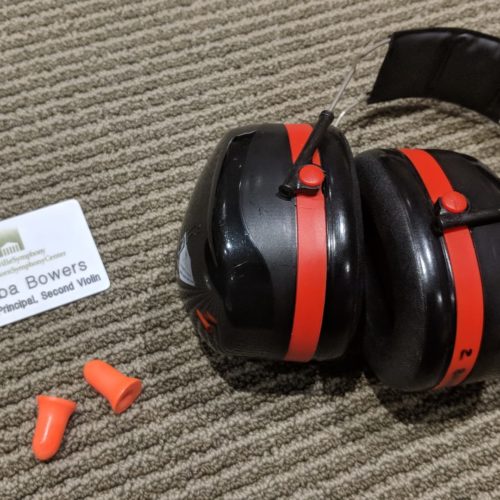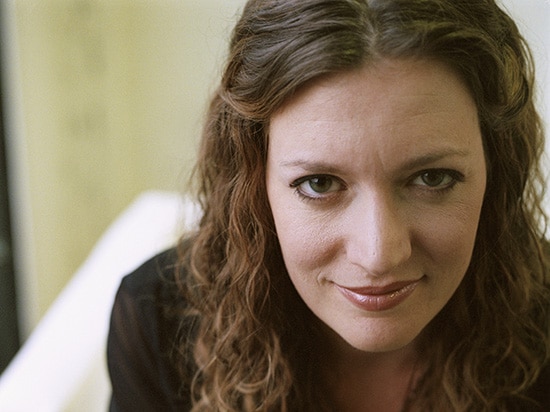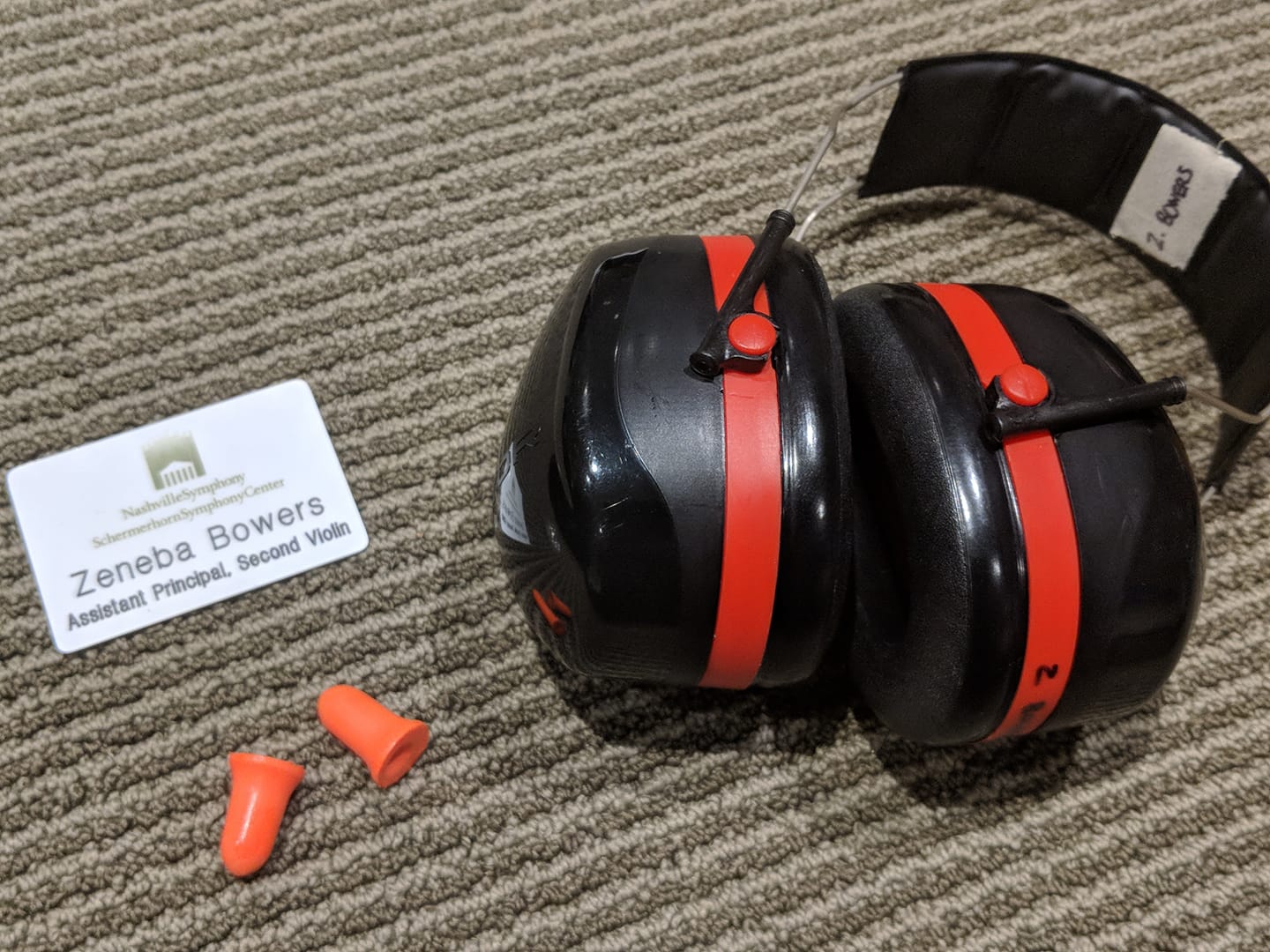Couple quit orchestral life amid noise and disillusion
mainA decision by the Nashville Symphony violinist Zeneba Bowers and her cellist husband Matt Walker to quit their jobs has provoked a good deal of discussion among US musicians. Zeneba has given their reasons, which we reproduce with her permission. Their story does not make comfortable reading:
Zeneba Bowers: Many have asked why we would leave our orchestra job, especially when the two of us are employed full time in the same ensemble. We won’t have this again: the likelihood of two jobs being open in the same orchestra at the same time, and of us winning those jobs competing against hundreds of other applicants in a screened audition is….zero. It was not a decision made lightly.
We are soon leaving Nashville, and the US, for our tiny apartment in our little town in Italy. We’ll be working there as artistic consultants, helping local institutions create and manage cultural and musical events. Part of our work will involve using our decades of experience in managing, directing, and working with many other arts organizations and individual artists – we’ll employ these skills and knowledge to create and curate performance experiences for different venues and communities. We’ll also be reaching out to our exceptional contacts in the business to bring them to Italy to perform and teach.
And of course we ourselves will still perform as well.
Taking such a huge step – the two of us quitting our full-time symphony jobs to sell our house and nearly everything we own and move overseas – has led to a huge amount of soul-searching… About music, art, work and play, and about life in general.
When I was 8, my parents took me to the Philadelphia Orchestra, in the $2 “nosebleed” section, because those were the tickets we could afford. I fell in love and decided right there I wanted to grow up to play in an orchestra. It has been my lifelong goal since then, which is why it has been so difficult to make the decision to leave.
Over my career in American orchestras, I’ve found that the proportion of pops to classical in my orchestra job has vastly shifted. I always knew Pops would be a part of my career, and in the right proportion, I found it engaging and fun. But the proportions are well out of whack, at least for what I am willing to do. Compounding that issue is the fact that the concerts have gotten louder and louder, with seemingly no reasonable solution or end in sight.
Maybe the tipping point was when I had to purchase lawn-mower-guy ear cans to use in addition to my earplugs, or maybe it was the first time I puked in the bushes in front of patrons after a concert from the concussive effects of extended exposure to extreme levels of sound. Or maybe it was just the first time that I realized that I counted down the days until the season was over, instead of what I used to do, count down the days until it began.

Turning my focus to the classical portion of our programming, I realized that something very important was missing. As I grew older and more experienced, I had more ideas and skills, not fewer. At the same time, my opportunity for contributing anything artistic seemed to shrink to zero. I wanted to contribute more than what was deemed appropriate or desirable within the string section of an orchestra. A lot of what I love about being a violinist was not appropriate in an orchestral setting: moving with the music, interacting musically with other players, choosing how to turn a phrase. It hit me like a thunderbolt when I realized that facial expressions are the only thing I have control over.
Even as a young woman starting in this business, I was never under the illusion that I’d have artistic control in an orchestra job — that’s just not the gig. It’s the primary reason I founded ALIAS – to have artistic control over my life in the form of chamber music performance and management. But over time I’ve found that the complete lack of artistic input, or opportunity for it, in this orchestra has become such an obstacle that while playing in this ensemble is something I enjoy doing, I no longer want to do it for the rest of my life as a full-time job. I know I’ll continue to grow and learn as I age and that desire to contribute will only gain steam, not dissipate. At some point it became evident that I was going to have to leave, to preserve (and continue to nurture) the passion I have for this instrument, and for orchestral music in general.
Thinking about leaving, I worried that I’d miss playing in orchestra, but then one day it hit me — I already do miss it. It was a painful revelation, but it fueled me to buckle down and really think about how I could shift my career as a musician to something that was meaningful and inspiring to me.
So for what it’s worth, I wanted to offer advice to younger musicians:
Guard your love and passion, and do what is required to save it. Think long term, and develop other skills that may sustain you in case of injury or in case you need to take a year off to recharge (or to completely shift, like me). Each skill you acquire will challenge you, but will also be a potential “escape hatch” you can use in case of “artistic emergency”.
Find opportunities for yourself to have an artistic say in things, to foster your need to choose, to interact, to contribute. Even if you do that, you may find that in order to sustain and grow your love of music, you may need to make a drastic change.
I’m not a rich person, and I don’t come from any family money. A few years ago when I began to realize that I couldn’t continue my orchestra life, I was pretty scared; after all, how else could I support myself *and* feel free? And I was doing this with my husband, who plays cello in the same orchestra as me: so we were doubly blessed with a good, steady paying job, but one that we felt stifled us artistically. We did a lot of hand wringing and soul searching, and then began to take deliberate steps: one step at a time, each getting us closer to what we hoped would be a new beginning.
Now we have stepped right over the line, and taken a huge leap of faith. We are leaving behind many colleagues that we love to perform chamber music with, and a thriving and vibrant artistic community of small, energetic, upwardly mobile ensembles. We are moving forward, a little excited, a lot panicked, a bit sad, and with a ton of gratitude, and a hope that this second phase of our careers meets the hopes and expectations we have for it.







Comments